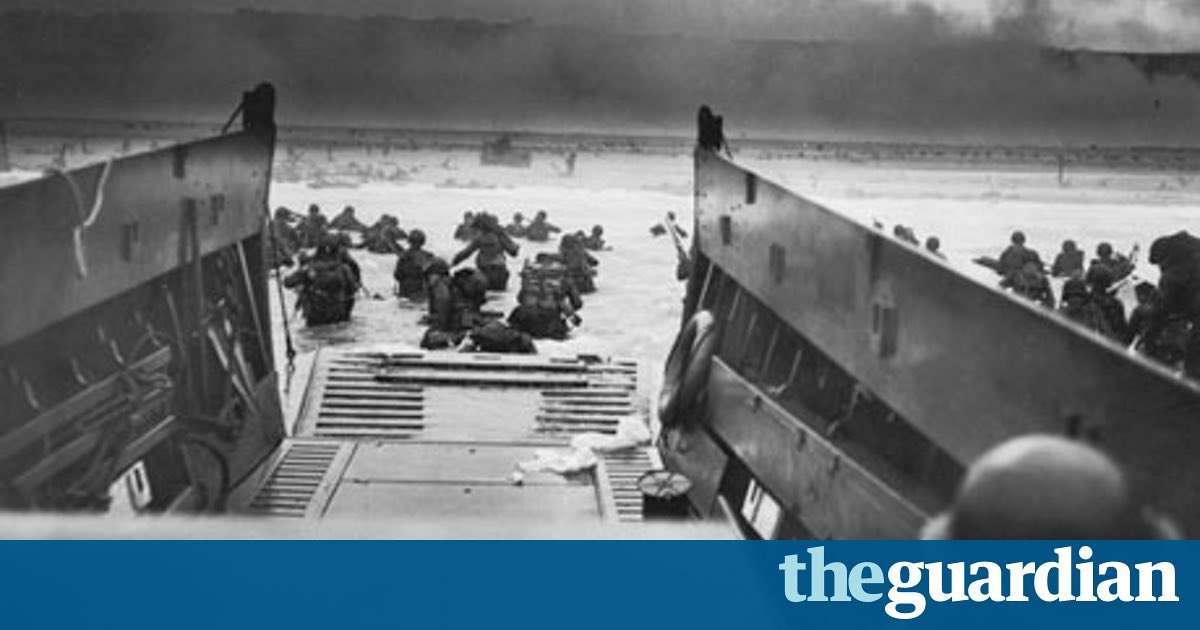In 1944, headmaster and crossword compiler Leonard Dawe published vital military codewords in a Telegraph puzzle. Will we ever find the answers, or even some fresh clues, to this classic crosswording mystery?
The Telegraph recently published a Centenary Collection of its puzzles, from the earliest grids to the Toughies and Enigmatic Variations of today.
Telegraph puzzle editor Phil McNeill gives a lively introduction to each section, and the collection includes the most apparently dangerous puzzles that the Telegraph has ever printed. Yes, and seemingly for the first time, Cryptics 5,246, 5,775, 5,792, 5,797, 5,799 and 5,802 are collected to reveal their apparently treacherous joint legacy.
Ardent solvers will know at once that these are the "D-day crosswords". For the benefit of newcomers, these are puzzles from 1944 that included among their answers UTAH, OMAHA, OVERLORD, MULBERRY and NEPTUNE, all of which were secret codewords for the Normandy landings, mere days away.
An understandably suspicious MI5 interrogated the setter in question, Leonard Dawe. The spooks found themselves confronted with a typical enough compiler of crosswords – that is, someone extraordinary. Dawe was a headmaster who, in his career, would also find the time to set 5,000 Telegraph puzzles, without a sniff of the quisling about him.
The authorities had cause to be wary of puzzles: Adam McQueen's recent collection of state secrets, The Prime Minister's Ironing Board, discusses a Nazi propaganda leaflet that was dropped into Sussex the same year, containing among its trumpeting of the "German inventive genius" a puzzle in which the black squares spelled out the message "V1". But what were they to make of UTAH and so on?
At the point where Dawe was released to return to his school, the story is one of spooky coincidence; indeed it sat comfortably in Tales of the Unexplained-type, free-binder-with-issue-two periodicals until the 1980s.
Then, during the celebrations of the 40th anniversary of D-day, one of Dawe's former pupils approached the Telegraph and insisted that as a lad, he had overheard US and Canadian soldiers discussing the plans, picked up on the codewords, and suggested them to his headmaster as possible entries.
Here it stops being Tales of the Unexplained, and becomes more like Tales of the Unexpected – a gripping yarn with a cute twist in the tale. Too cute for me. Real life tends to be messier than that, its enigmas not easily tidied up by discovering the intervention of some delightfully pesky kids.
So I'm always interested to hear more about the affair. Val Gilbert, a previous puzzle editor at the Telegraph, felt the same:
"So, is that the end of the story? Somehow I doubt it. Somewhere, someone will clear out an attic and come across more papers relating to 'The Crossword D-day Codenames'. I hope they will contact The Daily Telegraph when they do."
Tom Rowley, features writer at the Telegraph, expresses similar thoughts in a piece he has written about the mystery; he notes that two years earlier, DIEPPE had appeared as a Telegraph answer one day before the calamitous raid on that port.
The article contains two snippets that are new to me. Neither resolves the mystery, but they're both lovely splodges of colour. There's a quote from one Tom Weston, head boy of Dawe's school at the time, recalling the day that MI5 came to school:
"An official-looking car turned up," he recalls. "I was interested, so I kept watching. After a time, I saw Mr Dawe go off in the car with whoever it was."
Weston and his schoolmates were flabbergasted, and the Telegraph has surely never printed anything more Telegraphy than this remark: "We were astonished at the thought that Dawe was a traitor. He was a member of the local golf club."
I was also tickled by how Bill Deedes, Telegraph editor during those 40th-anniversary celebrations, responded when he heard about the Dawe affair. He was: "alarmed by the scandal afresh, and instructed the puzzles editor to check that no codewords relating to the Falklands had appeared in the crossword during the recent conflict."
That's right: to check that the crossword wasn't in the hands of traitors, he asked the crossword editor to find out any secret codewords being used by the military. Happily, no evidence was found that the puzzle was being used to send helpful military tips to General Galtieri.
As for MULBERRY, OVERLORD and the rest, the puzzle persists. I had hoped that the centenary of the crossword itself might have prompted some scrap of paperwork, recollection or fresh insight, but the wait goes on.

Swardington on June 6th, 2017 at 15:46 UTC »
For anyone curious; Mulberry was the name for the portable harbors they installed once the beaches were taken, Neptune was the codename of the amphibious part of the Normandy invasion, Overlord was the codename of the whole operation, and Utah and Omaha were codenames of different beachheads.
J4CKR4BB1TSL1MS on June 6th, 2017 at 14:53 UTC »
Oh well, let him go guys, he's a member of the local golf club!
Sir_Wemblesworth on June 6th, 2017 at 11:42 UTC »
I can only imagine. All that work in concealing your plans. All that work in making the Nazis think you had very different plans. All to see key code words come up in a damned crossword puzzle. I'd be paranoid too.